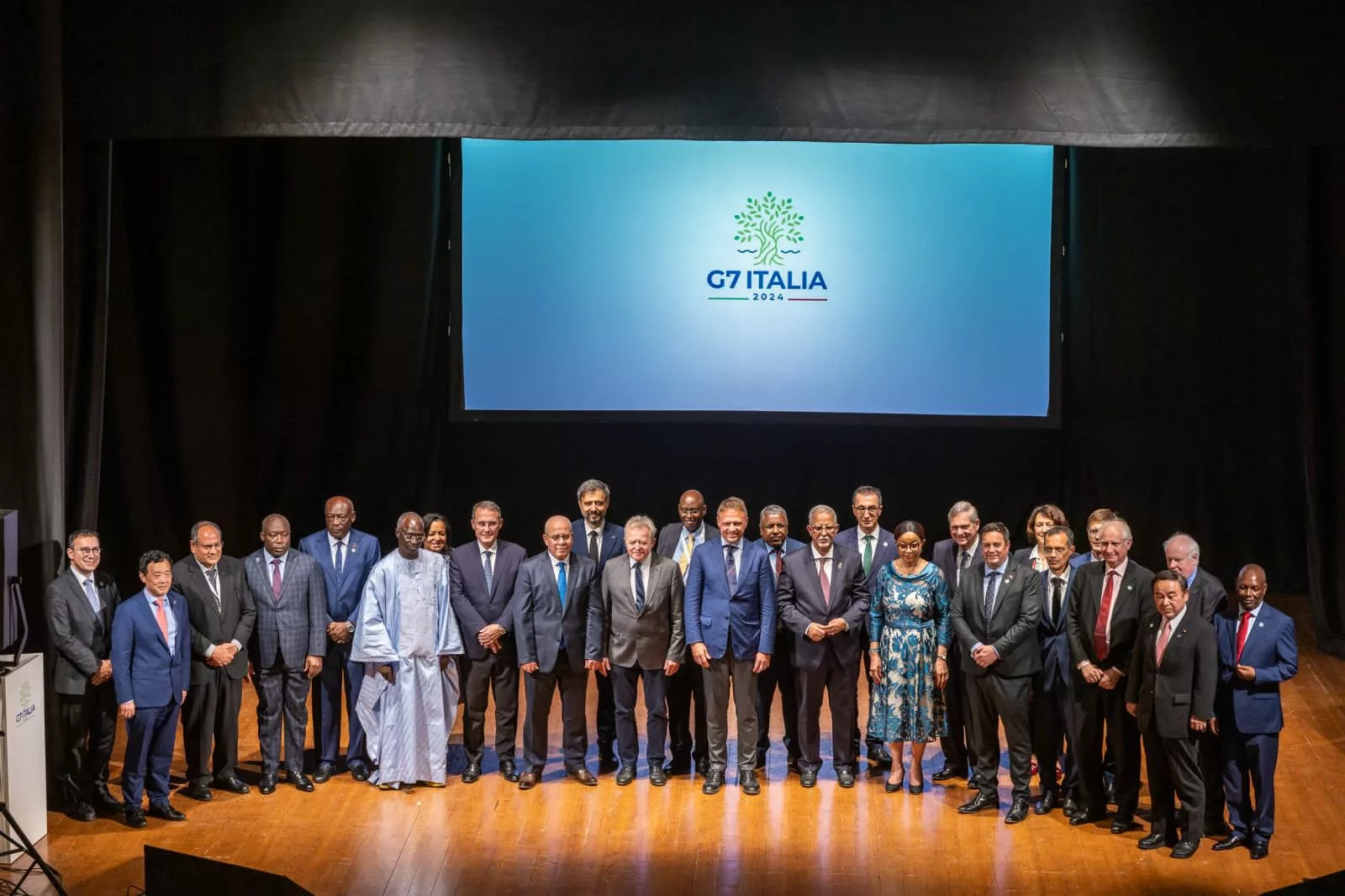|
Getting your Trinity Audio player ready...
|
Agriculture continues to be the mainstay of the African economies, accounting for 17.2 per cent of the continent’s gross domestic product, the Commissioner of the African Union’s Department of Agriculture, Rural Development, Blue Economy and Sustainable Environment, Josefa Correia Sacko, said in Puglia, Italy.
Ambassador Josefa Sacko, who presented these figures during the G7 summit (group of the world’s most industrialised countries), said that this sector consumes 52 percent of the continent’s total employment and 75 percent of its internal trade.
She said that Africa’s agriculture has enormous potential, as it has the natural ingredients needed to considerably increase agricultural production, judging by around 600 million hectares of uncultivated arable land, including nearly 65% of the world’s available arable land, an abundance of fresh water, as well as a young and growing workforce, along with increasing urbanisation and large regional markets, especially with the signing of the Continental Free Trade Area.
The diplomat said that since 2000, sub-Saharan Africa has also recorded the highest agricultural growth rate of any region in the world, but despite this immense potential and recent performance, the continent has not been able to turn the advantages of this sector into a centre of development due to multifaceted problems.
“There are still difficulties in acquiring arable land for large-scale agriculture due to poorly defined legal rights, poor infrastructure, especially in terms of roads and electricity, which make agro-industrial businesses unprofitable and uncompetitive,” the DARBE Commissioner emphasised.
She stressed that African agriculture is still predominantly rainfed and led by small farmers with low productivity. Approximately 80 per cent of agricultural land in sub-Saharan Africa is occupied by small farmers who grow subsistence crops or two cash crops on small plots of land.
Sacko said that to change the current situation, the African Union has devised a new strategy to boost agriculture, consisting of a 10-year programme to modernise the sector and increase resilience, the plan for which will be presented next year by the African Heads of State and Government at the extraordinary summit scheduled for Kampala.
“We would very much like the G7 to support this plan, in addition to government support, Africa is ready for business, and we are inviting private investors from the world’s most industrialised countries to come and invest in African agriculture, especially agribusiness, which is expected to reach 1 trillion dollars by 2030,” she stressed.
In her opinion, the quality of current cooperation with the G7 is good, although he recognises that it can be improved, as it is necessary to establish serious and dedicated upstream dialogues with African countries and African organisations, such as the African Organisation for Economic Cooperation and Development, to identify and co-design joint programmes and projects.
“For example, in the case of Germany, we are working very well to review our agricultural policies. We want this kind of support from other G7 countries, especially to mitigate the impact of climate change on African farmers,” she said.
Josefa Sacko noted that last year the Italian government launched a plan, called the Mattei Plan, which aims to help African countries. which aims to help African countries develop their agriculture to be self-sufficient in terms of food and avoid migration.
“From a practical point of view, the Italian government is helping Italian companies to invest in Africa. For example, the BF group has signed an agreement with the Algerian government to lease 36,000 hectares of land to be cultivated in partnership with local companies,” she said.
In this way, she added, it will also be important to use the ‘Mattei Plan’ to attract public and private investment in major African programmes such as the Global Programme for Agricultural Development in Africa, the Programme for Infrastructure Development in Africa and the African Continental Free Trade Area.
The plan has initial funding of 5.5 billion euros in grants, credits or guarantees, and initially consisted of nine pilot projects in Algeria, the Democratic Republic of Congo, Egypt, Ethiopia, Ivory Coast, Kenya, Morocco, Mozambique and Tunisia, centred on five fundamental pillars: education, training, agriculture, health, energy and water.






